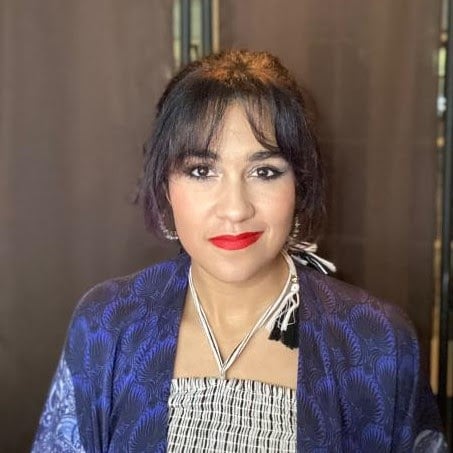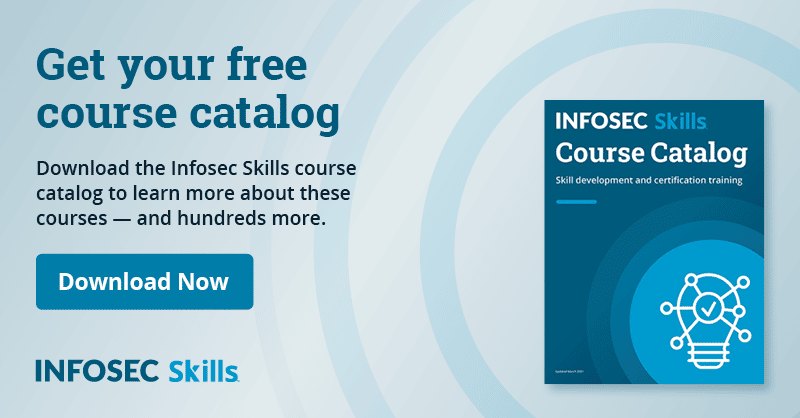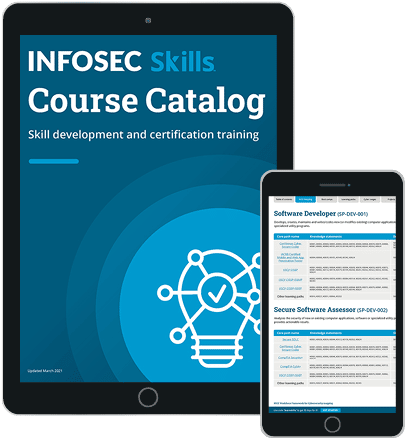Paraben CEO shares the importance of creative thinking in digital forensics
Digital forensics investigators are responsible for bringing justice to cybercrime cases. That includes capturing data from smartphones, computers, gaming systems, social media and email — often all for one case. The difficulty often lies in bringing all those pieces together, said Paraben CEO Amber Schroader.
"I want the best, broadest picture when I'm doing an investigation because we have a burden of proof. We're going to prove you innocent or guilty."
Paraben's E3 software platform streamlines all data onto a single platform for digital evidence. "I have a laptop. I have a smartphone. I have a tablet. I wear a Fitbit. All of those pieces kind of equal up into my digital fingerprint," said Schroader.
Schroader created two learning paths for Infosec Skills to help forensics professionals learn and certify their skills around the E3 platform:
- Paraben P2C Operator Certification, which focuses on the introductory-level capture of digital data, including artifacts found in file system data, email, instant messaging and mobile device backups.
- Paraben DSMO Mobile Operator Certification, which focuses on the three primary areas of collecting mobile evidence: acquisition, analysis and reporting.
While there's more to digital forensics than knowing how to use tools, the two learning paths are focused on getting to "that operator level competency with all of the technology," said Schroader.
Because there are so many specialties in digital forensics — from smartphones to email to social media — a thorough understanding of the software and processes involved is important. "Each specialty has a very different feel and workflow to it," said Schroader.
What traits make someone a good digital forensics investigator?
Digital forensics calls for people who are good investigators.
"It's a very hard skill to teach someone," said Schroader. "But there are ways in the interview process that we test to make sure your brain kind of works that way."
Schroader believes the three most important qualities that make someone a good fit for digital forensics are "creativity, imagination and — believe it or not — a little bit of ADD (attention deficit disorder). You're always going to be doing something different every day. I've never looked at two machines and said, 'Well, those are the exact same. I have nothing unique to look for here.'"
Schroader said her dyslexia "really worked well in digital forensics because you do everything backward. It really clicked in my brain — the process that I would go through and the collection or understanding of how to get digital evidence out of something."
Digital forensics requires analytical and creative thinking. Schroader said that "finding a balance between your left and right brain is critical for a good investigator." You need to think outside of the box to piece together how the events in a case unfolded.
"Your tools will get the binary for you. The black and white, and the ones and zeros, that's what your tools are for, but you have to be able to put those pieces together."
Just like Schroader's dyslexia makes her a better investigator, so do her sewing skills. Schroader applied her sewing skills to digital forensics by inventing and patenting the EMI shielding container, which is used to prevent wireless devices from receiving signals after they've been seized as evidence.
"It makes sense why I would need to do that with evidence because I can't keep having it change while I'm taking it from point A to point B," said Schroader. "This makes it so that I have a little teeny cone of silence it can exist in."
Launching your digital forensics career
If you're looking to get into digital forensics, technical certifications are a great way to demonstrate skill, said Schroader.
"It's not necessarily about a bachelor's program," she says. "It's about knowing that I can sit you down, and you can take these tools together and come out with the data I'm looking for — because it really is all about processing different pieces of data. I find that not everybody learns that in a traditional educational environment and the technical certifications make all the difference."
Schroader believes one skill that can set you apart in cybersecurity is writing.
"I can put technical pieces of data together, but I have to be able to explain that technical piece of data to someone who is not technical," Schroader explained. "It's not something that's really taught and emphasized in your career path to be in the world of cyber, but there is a lot of report writing, and there is a lot of translation of your information to someone else, and you have to be able to present it.
She added: "That's an area that everyone in this space can improve on."




